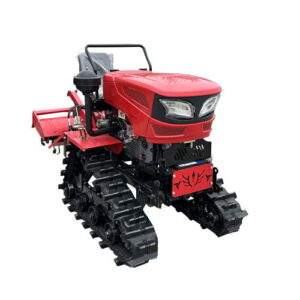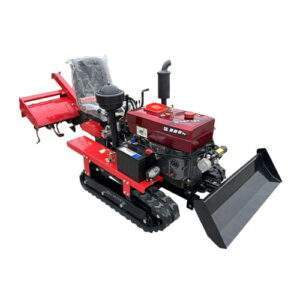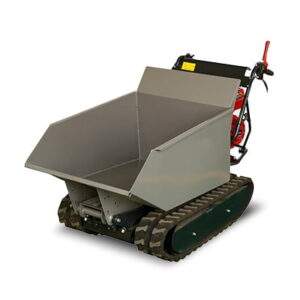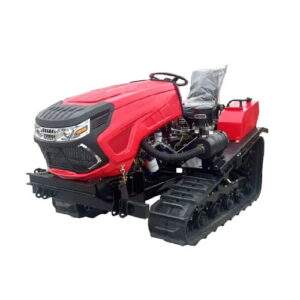How a Tractor for Agriculture Can Revolutionize Your Farming Practices
Welcome to My Blog!
Before we dive into the content, I’d love for you to join me on my social media platforms where I share more insights, engage with the community, and post updates. Here’s how you can connect with me:
Facebook:https://www.facebook.com/profile.php?id=61557298070472
Now, let’s get started on our journey together. I hope you find the content here insightful, engaging, and valuable.
Introduction

In today’s agricultural landscape, a tractor for agriculture has become an essential tool for modern farmers. This versatile piece of machinery can transform farming practices, providing numerous benefits from improved efficiency to greater productivity. In this blog, we’ll explore how a tractor for agriculture can revolutionize your farming operations, discussing its key benefits, various types, and how to choose the right one for your needs.
The Evolution of Tractors in Agriculture
Historical Context
The tractor for agriculture has undergone significant evolution since its early days. Initially powered by steam, these machines have evolved into sophisticated diesel-powered tractors that can perform a multitude of tasks on the farm. Early tractors were a breakthrough in agricultural technology, and today’s advanced tractors continue to push the boundaries of what’s possible in farming.
Modern Advancements
Modern tractors for agriculture come equipped with cutting-edge technologies such as GPS navigation, automated steering, and advanced monitoring systems. These innovations enhance the tractor’s efficiency, allowing farmers to achieve precise planting, fertilization, and harvesting, which ultimately leads to higher crop yields and reduced waste.
Key Benefits of Using a Tractor for Agriculture
Increased Efficiency
A tractor for agriculture greatly enhances farm efficiency. It can handle a variety of tasks including plowing, planting, and harvesting much faster than manual labor or traditional methods. This boost in efficiency translates to significant cost savings and higher productivity on your farm.
Versatility in Operations
One of the standout features of a tractor for agriculture is its versatility. With a range of attachments and implements, a single tractor can manage numerous agricultural tasks. This adaptability makes it an invaluable asset, whether you need to till soil, plant crops, or transport materials.
Labor Reduction
Farming is labor-intensive, and a tractor for agriculture can significantly reduce the physical strain on workers. By automating tasks that were once done by hand or with animal power, a tractor decreases the need for manual labor and allows for faster completion of essential farm operations.
Precision Farming
Tractors equipped with advanced technologies for precision farming are game changers. Features like GPS and sensor systems enable farmers to make data-driven decisions on planting and fertilization, leading to more efficient use of resources and improved crop yields.
Types of Tractors and Their Uses
Standard Tractors
Standard tractors for agriculture are the most commonly used and are suitable for a range of tasks. They can handle plowing, harrowing, and transport, making them versatile tools for general farming operations.
Compact Tractors
Compact tractors are ideal for smaller farms or specific tasks that require maneuverability. They are excellent for mowing, small-scale plowing, and landscaping, offering a practical solution for farms with limited space.
Utility Tractors
Utility tractors are designed for medium to large-scale farming operations. They are more powerful than compact tractors and can handle heavy-duty tasks such as large-scale plowing and hauling, making them suitable for extensive agricultural operations.
Row Crop Tractors
Row crop tractors are specifically designed for farming row crops like corn and soybeans. With narrow wheels and high ground clearance, they navigate between crop rows with minimal disturbance, optimizing planting and harvesting processes.
How to Choose the Right Tractor for Your Farm
Selecting the right tractor for agriculture involves several key considerations:
- Farm Size and Scope: Larger farms may need more powerful tractors with advanced features, while smaller operations might benefit from compact or utility tractors.
- Type of Crops: The type of crops you grow will influence your choice. For row crops, a row crop tractor is ideal, whereas general farming might be well-served by a standard tractor.
- Budget: Tractors for agriculture come in various price ranges. Consider both the initial cost and the long-term maintenance expenses when making your decision.
Factors to Consider When Buying a Tractor for Agriculture
To aid your decision-making, here’s a comparison table of different tractor types and their features:
| Tractor Type | Power Range | Typical Uses | Advantages | Limitations |
|---|---|---|---|---|
| Standard Tractor | 40-120 HP | Plowing, harrowing, transport | Versatile, suitable for various tasks | May not be ideal for very small farms |
| Compact Tractor | 15-50 HP | Mowing, small-scale plowing, landscaping | Maneuverable, ideal for small farms | Less powerful, limited capacity |
| Utility Tractor | 50-150 HP | Heavy-duty plowing, hauling, general use | Powerful, suitable for medium to large farms | Higher cost, more maintenance |
| Row Crop Tractor | 80-200 HP | Row crop farming, precision planting | Designed for specific crops, high efficiency | Expensive, may not be versatile |
Maintenance and Care for Your Tractor
To maximize the lifespan and performance of your tractor for agriculture, regular maintenance is essential. Key aspects include:
- Routine Checks: Frequently inspect oil levels, tire pressure, and hydraulic fluids.
- Scheduled Servicing: Follow the manufacturer’s maintenance schedule for engine servicing and filter changes.
- Cleaning and Storage: Keep your tractor clean and store it in a sheltered area to protect it from environmental damage.
Environmental Impact and Sustainability

Modern tractors for agriculture are designed with environmental sustainability in mind. Many models are built to be more fuel-efficient and have lower emissions. Additionally, the precision farming capabilities of these tractors help optimize the use of fertilizers and pesticides, thereby reducing their environmental footprint.
Conclusion
A tractor for agriculture is a transformative tool that can revolutionize your farming practices. By enhancing efficiency, reducing labor, and enabling precision farming, a tractor can significantly improve productivity and operational effectiveness. Investing in the right tractor for agriculture can lead to substantial benefits, whether you manage a large-scale operation or a smaller farm.
FAQ
Q: What should I consider when buying a tractor for agriculture?
A: When purchasing a tractor for agriculture, consider factors such as the size of your farm, the type of crops you grow, your budget, and the specific tasks you need the tractor to perform.
Q: How often should I maintain my tractor for agriculture?
A: Regular maintenance checks should be done frequently, with scheduled servicing according to the manufacturer’s guidelines to ensure optimal performance.
Q: What are the benefits of precision farming with a tractor for agriculture?
A: Precision farming with a tractor for agriculture allows for more efficient use of resources, leading to increased crop yields and a reduced environmental impact.
Q: Can a tractor for agriculture be used for both small and large farms?
A: Yes, there are different types of tractors for agriculture suited to various farm sizes, from compact tractors for small farms to larger models for extensive operations.
Q: How does a tractor for agriculture contribute to sustainability?
A: Modern tractors for agriculture are designed to be more fuel-efficient and environmentally friendly, and their precision farming capabilities help in reducing the use of fertilizers and pesticides.



